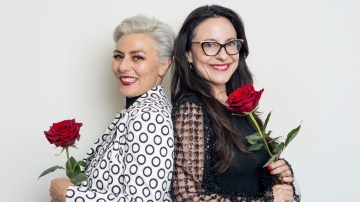Virgin Island: A Unique Look into Modern Intimacy and Relationship Retreats

When you hear "virgin island," you might picture untouched shores and tranquil waters. Recently, the phrase has taken on new meaning thanks to a bold TV experiment. Channel 4’s documentary series, Virgin Island, offers an eye-opening glimpse into intimacy, connection, and sexual self-discovery for a generation facing unique challenges.
What is the Virgin Island Retreat?
The Virgin Island retreat brings together twelve adults, many in their twenties and thirties. Away from daily distractions, these individuals participate in guided workshops and one-on-one sessions with professional sexologists and intimacy coaches. The retreat aims to help them overcome shyness, intimacy fears, and body image anxieties, paving the way for healthier relationships. As The Times reviews explain, these sexologists foster a safe environment where participants build trust and break boundaries—at their own pace.
A New Take on Sex and Social Connection
Virgin Island stands out for its innovative approach. Participants don’t compete for prizes or fame but instead focus on genuine progress. British reserve, humor, and vulnerability shine through as group members share their journeys. Some, like Jason, tackle phobias of touch; others work to rebuild confidence after setbacks in dating. The Guardian’s review praises the show’s empathy and the bravery shown by everyone involved. As the story unfolds, viewers see real breakthroughs in emotional openness and self-acceptance—something rarely captured in reality television.
Therapy, Self-Discovery, and Cultural Reflections
A key aspect of the Virgin Island retreat involves not just physical intimacy, but self-reflection. Techniques like the "Somatica Method" encourage participants to build vulnerable, two-way relationships. They learn about boundaries, consent, and pleasure in workshops that mix group exercises with supportive coaching. However, the format raises important questions about privacy, therapy ethics, and the influence of reality TV. UnHerd’s commentary highlights the cultural clash between open Californian sex consultancy and British sensibilities, probing deeper issues of shame and personal growth.
Why Virgin Island Resonates Today
Virgin Island arrives at a time when more young people report feeling isolated or anxious about intimacy. Studies suggest a rise in singlehood and later sexual development among younger generations. The retreat’s candid, sometimes awkward, explorations strike a chord for anyone who’s felt out of place in the age of digital dating or cultural change. By spotlighting supportive, nonjudgmental sexual education and emotional connection, the show prompts important conversations around consent, vulnerability, and modern relationships.
Final Thoughts: Lessons from Virgin Island
Virgin Island isn’t just reality TV—it’s a reflection of societal shift. By normalizing conversations about sex, vulnerability, and self-worth, it creates space for empathy and mutual understanding. Whether you are curious about relationship retreats or seeking a deeper connection with yourself or others, the show invites you to reconsider what it means to truly connect in today’s world.
Curious to learn more about this unique social experiment? Dive into The Times, the Guardian’s analysis, and UnHerd’s critique for diverse perspectives on the transformative journey of Virgin Island participants.